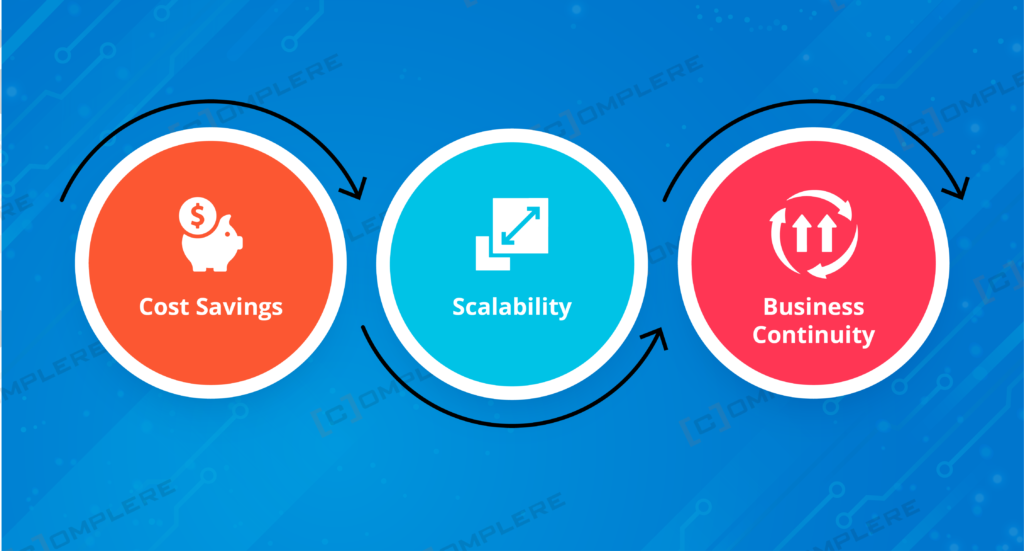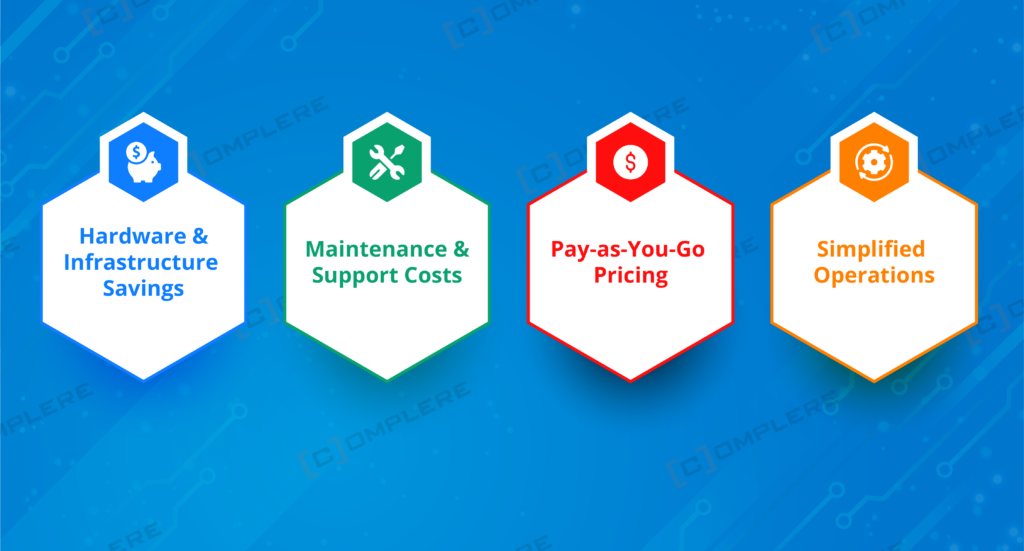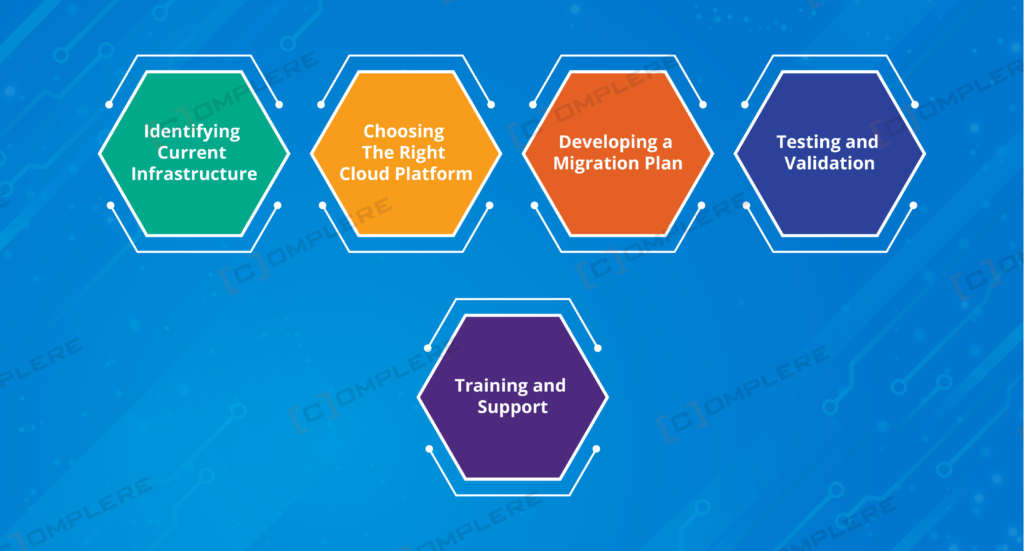Introduction
In today’s competitive business environment, operational efficiency and cost effectiveness have become very important. Cloud migration provides a powerful solution by allowing businesses to simplify operations, reduce infrastructure costs, and scale effortlessly. Today we will discuss how cloud migration can reduce your operational costs and help in preparing effective strategies for a successful transition. Also, we will highlight the role of cloud migration services and consulting.
What is Cloud Migration?
Before starting with detailed discussion on further topics let us first understand what cloud migration is. Cloud migration includes transferring a company’s digital stuff from on-premises infrastructure to cloud-based platforms. This digital stuff may include different applications, data and services. This transfer provides many benefits. These benefits include increased scalability, flexibility and cost savings. These benefits allow organizations to focus on their core business functions.
Why Cloud Migration Matters:

- Cost Savings: Cloud migration reduces operational costs by eliminating the requirement for on-premises hardware, maintenance and upgrades. It also provides flexible pricing models. These models allow businesses to pay only for what they use.
- Scalability: Cloud platforms allow businesses to scale their resources up or down based on demand. This ensures efficient resource allocation and reducing wasted capacity for your business success.
- Business Continuity: Cloud-based platforms offer redundancy and backup solutions. These solutions are efficient to prioritize reduced downtime and data loss in case of failures.
Reducing Operational Costs through Cloud Migration:

1. Hardware and Infrastructure Savings:
Cloud migration eliminates the requirement for physical servers, storage devices and networking hardware. This efficiently reduces initial setup costs, maintenance expenses and energy consumption during translating into significant savings over time.
2. Maintenance and Support Costs:
On-premises systems require regular maintenance that includes hardware upgrades, software updates and troubleshooting. Cloud platforms manage these tasks by freeing up IT teams. This free time helps them to focus on strategic initiatives and reducing support costs.
3. Pay-as-You-Go Pricing:
Cloud platforms offer flexible pricing models. These models are proven for allowing businesses to pay only for the resources they use. This prevents extra expenses and reduces wasted capacity. All together this idea ensures cost-effective resource allocation.
4. Simplified Operations:
By consolidating applications, databases and services onto cloud platforms, businesses can simplify their workflows, reduce data silos and improve collaboration in team and the entire processing. This improvement results in operational efficiencies and cost reductions.
Strategies for a Successful Cloud Migration:

1. Identifying Current Infrastructure:
Before you start with detailed discussion on cloud migration, you must evaluate your existing infrastructure. Don’t forget to include applications, databases and services to identify your current infrastructure. Identify key assets that can benefit from cloud migration and possible or hidden challenges.
2. Choosing the Right Cloud Platform:
Selecting a suitable cloud platform is one of the most important tasks for a successful migration. Consider some important factors, for example compatibility, scalability, security features and pricing models to ensure the platform matches with your organization’s requirement.
3. Developing a Migration Plan:
Create a detailed migration plan by following predefined steps for transferring your digital stuff. This smart step will reduce your downtime and provide excellent data integrity. This plan should also include contingency measures for your upcoming issues during the migration process.
4. Testing and Validation:
Before you fully implement the migration, it is necessary to test the new system. This new system testing helps to make sure all assets’ functions are working properly and are as per your expectation. This includes verifying data accuracy, application performance and integration with existing systems.
5. Training and Support:
Training and support make sure that your team is familiar with the new cloud platform’s features and functionalities. Training sessions can help users to adapt instantly by increasing the benefits of cloud migration.
What are Cloud Migration Services?
Cloud Migration Services include advanced benefits that efficiently help businesses in transferring their digital stuff to cloud platforms. These services include planning, implementation and post-migration support. This amazing support provides a flawless transition.
Key Benefits of Cloud Migration Services:
- Expertise: Cloud migration services bring specialized knowledge and experience with them. This expertise and experience provide efficient and flawless transitions for success.
- Time Savings: By outsourcing the migration process, businesses can focus on their core operations. This free time and resources can be used in other innovative and creative tasks in favor of your business growth.
- Scalability: Cloud migration services deliver scalable solutions. These scaling solutions allow businesses to adapt their migration strategies to changing requirements.
What is Cloud Migration Consulting?
Cloud Migration Consulting includes expert guidance to help organizations to develop and implement effective migration strategies. Consultants can effortlessly identify existing infrastructure, recommend suitable cloud platforms and assist with migration planning and execution.
Key Benefits of Cloud Migration Consulting:
- Customized Strategies: Consulting services provide customized migration strategies. These strategies effortlessly identify specific business requirements and upcoming challenges.
- Risk Mitigation: Consultants help in identifying possible big migration risks and develop contingency measures. These measures play a great role in reducing the chances of failure.
- Post-Migration Support: Cloud migration consultants provide strong and reliable post-migration support. They make sure that your new system functions as expected. Also, they identify any issues before they arise.
What is Cloud Data Migration?
Cloud Data Migration focuses on transferring an organization’s data from on-premises systems to cloud platforms. This process includes exporting, transferring and importing data along with providing integrity and consistency.
Challenges of Cloud Data Migration:
- Data Integrity: Assured data accuracy and consistency throughout the migration process is necessary in today’s digitally advanced business world. It works effectively in preventing data loss or corruption.
- Data Security: Transferring your sensitive data to cloud platforms requires technologically advanced security measures. These security measures include encryption, authentication and access controls.
- Compatibility: Cloud data migration must ensure compatibility between existing systems and new cloud platforms. It effectively prevents integration issues.
Cloud migration offers a powerful solution for organizations that want to reduce operational costs, simplify workflows and improve scalability. By eliminating the requirement for on-premises infrastructure and utilizing flexible pricing models. cloud platforms allow businesses to allocate resources more efficiently. However, successful cloud migration requires careful planning. implementation and support. Cloud migration services and consulting can provide the necessary expertise and guidance. They can also ensure a flawless transition that reduces risks and increases benefits.
Conclusion
Cloud migration provides a pathway for organizations to minimize operational costs, simplify processes and increase scalability. By adopting strategies for example assessing current infrastructure, choosing the right platform, and developing a comprehensive migration plan, businesses can approach a successful transition. Cloud migration services and consulting provide valuable support. This support guides businesses through the process and mitigating risks. With effective cloud migration, businesses can achieve new capabilities for growth, innovation and cost savings.
Download a free Redshift Data Warehouse case study to deepen your understanding of this advanced solution.





























